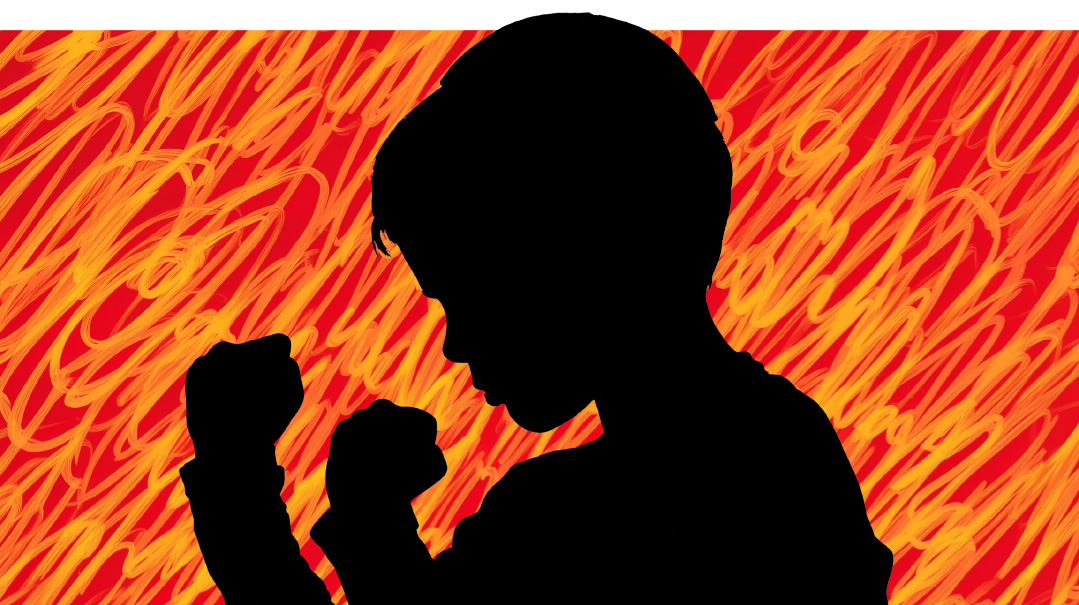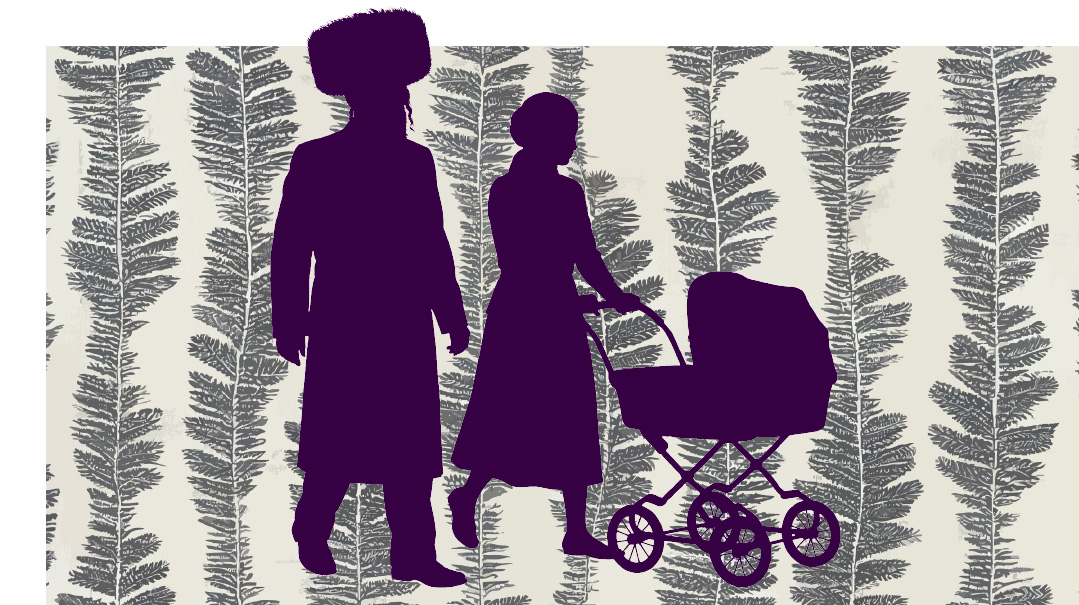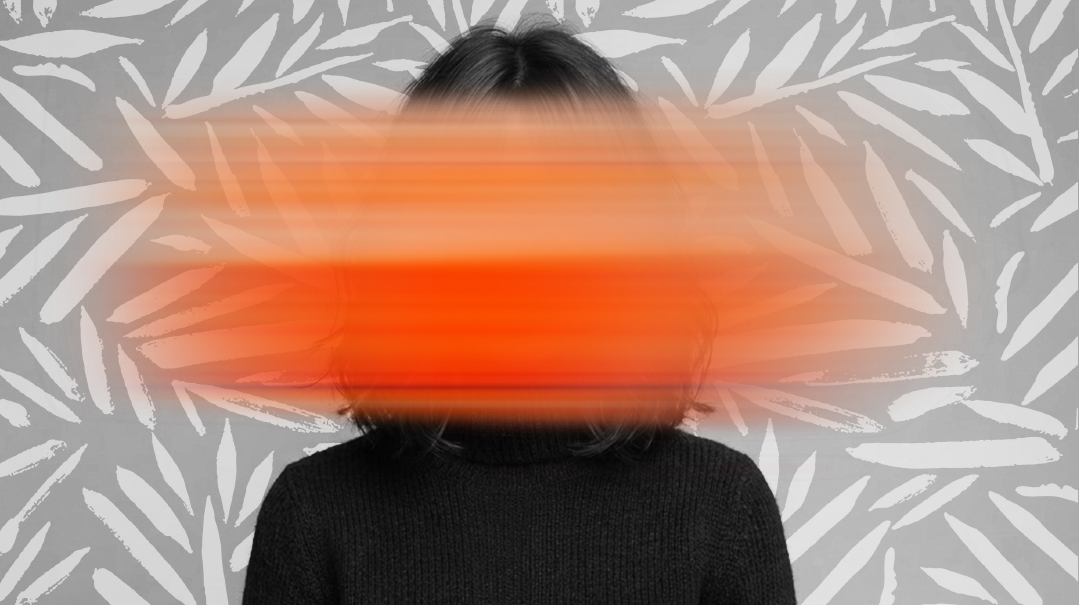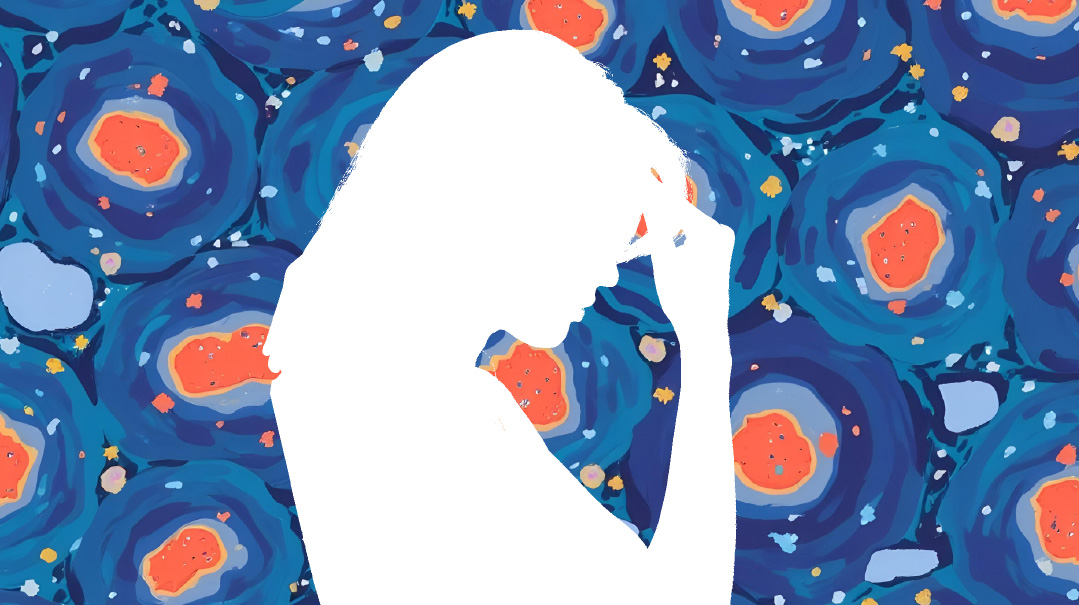Sibling Off the Derech
| July 6, 2021To me, one thing is clear: Kids who go off the derech are always in pain

As told to Dina Cohen
I’m from a small, out-of-town community, where my father was the shul rav. I’m the second of 12, and two of my siblings, my older brother and youngest sister, went off the derech in their teens.
My brother was always a tough kid, hyperactive and obstinate, and my parents found it very difficult to raise him, so his defection wasn’t a surprise. My parents assumed his teenage years would be challenging, though definitely not to that extent.
There was no framework in our small community for off-the-derech children, so my father took my brother to New York. He stayed there for two years before returning, still not frum, but at least more stable.
There was a lot of pressure on my family when my brother went off, because as the rav, my family was in the public eye. Truth be told, that had always been an issue. My parents are baalei teshuvah and had a bit of a complex about fitting in. Combined with the fact we were under constant scrutiny as “the Rabbi’s family,” my parents were hypervigilant, expecting we’d always be well-behaved, and they became hysterical when we acted like regular children, fighting or being chutzpahdig.
When my brother left the derech, in addition to their devastation, my parents were ashamed. It felt like a public admission that their parenting had failed, and made them wonder if the community no longer saw them as role models. It also humiliated them in the eyes of relatives who’d been very opposed to them becoming frum, as if my brother’s choice proved that a frum lifestyle was restrictive and primitive.
When my brother lived at home it was intense. My parents believed in keeping the door wide open for him, but it came at a price. He was also a terrible influence on the other children. On Shabbos, our house was the hangout for him and his drunk friends — better they get drunk in the “safety” of our living room than in a bar downtown.
Eventually, my parents moved to New York, hoping the issues they faced with my brother wouldn’t repeat themselves with the younger children in a place with better chinuch and more frum people. But my sister still left the derech; she started with an eating disorder, then abandoned Yiddishkeit.
As the oldest daughter, I felt responsible to make sure my parents weren’t too badly affected by the situation, and I tried to mediate between my brother and parents. It wasn’t long before I realized there was nothing I could do but live my own life well, to be an example of a healthy, happy frum person, and a source of nachas to my parents. And that’s where I invested all my effort.
When I started dating, someone made a snide comment along the lines of, “Your family situation is going to impact the dates you get. You know that, right?” It was such a callous comment that it didn’t even hurt me, I was just disgusted someone would say that to me outright.
And yes, I had to weed through suggestions more carefully. But I was one of the first in my seminary class to get married to a guy who told me, “Lots of people go off the derech today. It’s an epidemic. I don’t think it’s a reason to disqualify someone.”
Things did get sticky once I got married and started to have children. I hadn’t realized how toxic my family life had been; it seemed normal to me. Learning how to parent in a healthy way and making sure I didn’t repeat my parents’ mistakes was challenging. And as my children got older, there was the issue of exposing my children to their non-frum uncle and aunt.
Whenever my brother or my sister were home, it got ugly. We don’t want our kids to see their bad example, both their irreligiosity, and the fighting, blowups, and rudeness, which is a constant in my parents' house, especially now that my younger sister is in the throes of her eating disorder and is emotionally unstable.
That part is what hurts me most. I want my children to be close to their grandparents. I want the extended family to get together for Yom Tov and birthdays and simchahs. Instead, my siblings and I who are frum avoid being with my family, and when we do get together, feel so drained by the tension, it takes us a few days to recover.
I decided to take the experience I’d gained with my siblings and become a volunteer Big Sister for off-the-derech girls. That concretized a lot of my observations about the background of kids going off the derech.
To me, one thing is clear: Kids who go off the derech are always in pain. Perhaps their family had issues; perhaps they’re a soulful type who had many questions and few satisfactory answers; perhaps they have emotional or mental health challenges; perhaps learning didn’t speak to them, so they felt like failures early on and never developed a loving relationship with Hashem and Torah; perhaps someone who represented the Torah hurt them or abused their trust.
A lot of kids who go off have a hard time in school. Learning and following the rules, a huge characteristic of Torah life, is very hard for them. We need to make more of a place in Yiddishkeit for those who aren’t academic and don’t have the ability to sit for long periods.
I’ve also noticed that many of these kids have parents who are baalei teshuvah. Yes, I know that’s a controversial observation. Being exposed to people who aren’t frum (either extended family or through kiruv situations) doesn’t necessarily mean your kids will go off. There are other factors at play. Many baalei teshuvah come from challenging backgrounds. I guess the suffering they experienced catapulted them into a search for meaning. But people who have no experience belonging to an emotionally healthy family, who then have many children in quick succession, need guidance. A lot of guidance. Parenting is such a mammoth task. How could you be equipped to do it if you have either no role models, or unhealthy ones?
A preoccupation with image is another factor. If your biggest concern is fitting in and/or what others think about you, and not what HaKadosh Baruch Hu wants from you, your children will sense that inauthenticity, and there will be reverberations.
Having siblings who are currently lost is challenging. Sometimes it’s very painful. But it’s made me into who I am — made me deeper, more empathetic, more compassionate, less judgmental, and I wouldn’t exchange it for any other nisayon.
Don’t ask me:
Why I think my siblings went off. It’s a very personal question.
Please realize:
- As I said, kids who go off the derech are in pain. Don’t judge them, and don’t look down on them, no matter how crazy their behavior. Just love them, nurture them, and respect their journey.
- Siblings of people off the derech are also in pain, especially if it was difficult family dynamics that caused the rebellion. They may not have responded by acting out, but they’re also hurting and confused, even if you don’t see it.
For those with off-the-derech siblings:
- Don’t worry about how your sibling will impact your shidduchim. Hashem is in charge. He has a plan for you, and if getting married to a wonderful person is part of it, then that will happen, no matter what.
- Don’t try to fix the situation. You can’t. Instead, do everything you can to heal yourself if you’re affected emotionally. Go to therapy, and read self-help books. And for the sake of your children, please take parenting courses and find mentors who can show you what a healthy, happy family looks like and teach you how to build one.
(Originally featured in Family First, Issue 750)
Oops! We could not locate your form.













